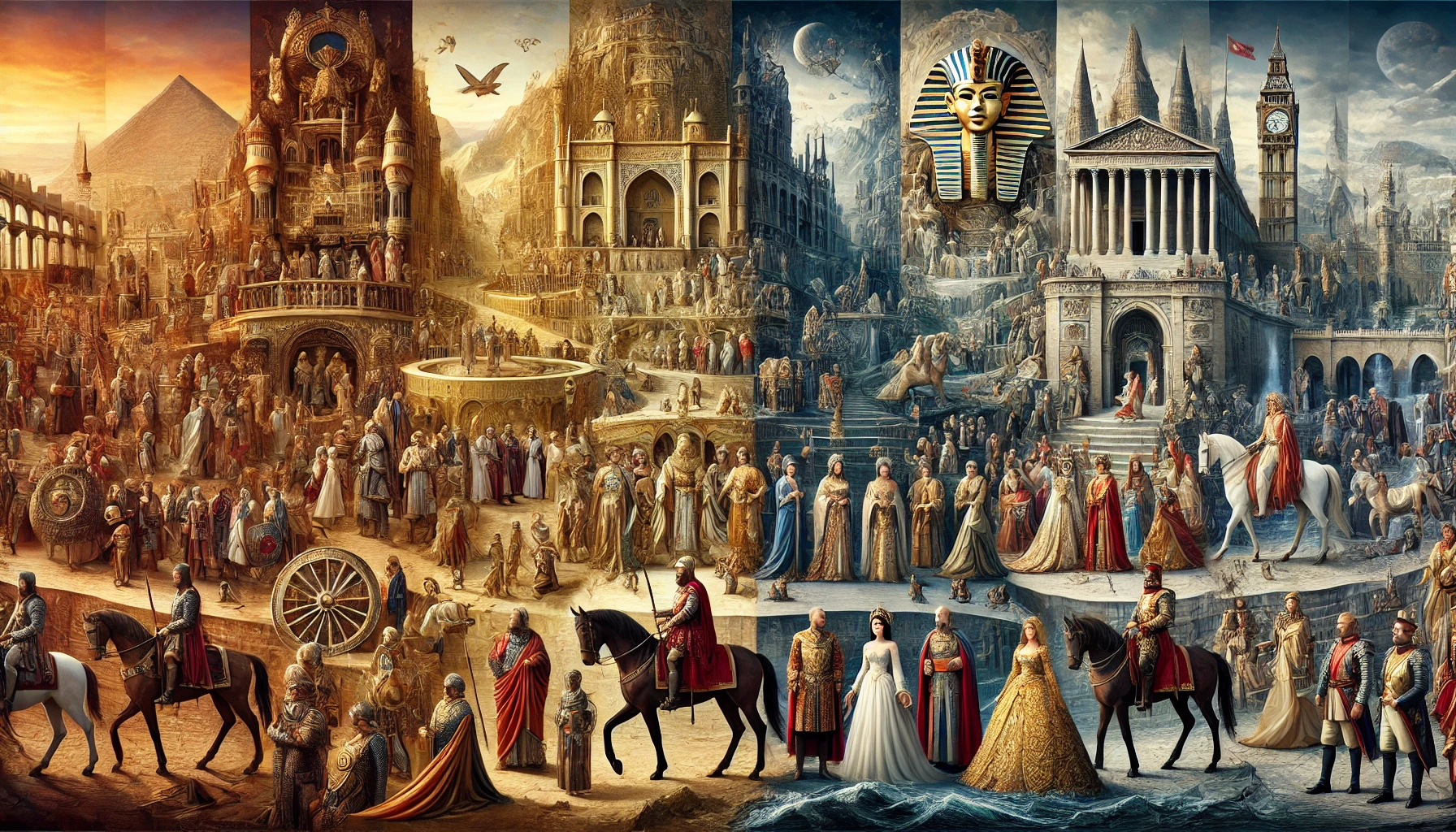Royal Given Names Through the Ages: A Historical Journey
Royal names have long carried immense power, prestige, and influence. These names not only reflect the values and traditions of their time but also shape cultural and dynastic legacies that span centuries. In this article, we explore fifty majestic given names categorized by era—from the ancient world to the modern age. Each category features ten notable royal names, complete with examples and brief historical context.

Ancient Royal Names: Great Civilizations and Powerful Dynasties
Tutankhamun – Tutankhamun, the boy king of Egypt, became a symbol of ancient mystery and wonder.
Cleopatra – Cleopatra VII ruled Egypt with intelligence and political savvy, famously allying with Julius Caesar and Mark Antony.
Ramses – Ramses II, often called "The Great," led Egypt during its golden age.
Darius – Darius the Great expanded the Persian Empire to its peak and reformed its administration.
Xerxes – Xerxes I, known from the Greco-Persian Wars, ruled over one of the largest empires in history.
Solomon – King Solomon of Israel was famed for his wisdom and monumental building projects.
David – King David united the tribes of Israel and established Jerusalem as its capital.
Cyrus – Cyrus the Great founded the Achaemenid Empire and was known for his enlightened rule.
Nefertiti – Queen Nefertiti was renowned for her beauty and influence in Egypt’s religious revolution.
Hatshepsut – One of the few female pharaohs, Hatshepsut expanded Egypt’s trade networks dramatically.
Medieval Royal Names: Age of Chivalry and Crusades
Richard – Richard the Lionheart was a crusading English king admired for his bravery.
Eleanor – Eleanor of Aquitaine was a powerful queen in both France and England.
Louis – Louis IX of France was later canonized as Saint Louis for his piety and leadership.
Isabella – Isabella I of Castile financed Columbus’ voyages and unified Spain.
William – William the Conqueror led the Norman conquest of England in 1066.
Matilda – Empress Matilda fought for her claim to the English throne during the Anarchy.
Philip – Philip II of France expanded royal power and influence in Europe.
Blanche – Blanche of Castile served as a regent of France with great strength and wisdom.
Henry – Henry II of England established legal reforms still influential today.
Margaret – Margaret of Anjou played a crucial role in the Wars of the Roses.
Renaissance and Early Modern Royal Names: Reformation and Exploration
Elizabeth – Queen Elizabeth I ruled England during its golden age and defeated the Spanish Armada.
Charles – Charles V ruled over both the Holy Roman Empire and Spain at its height.
Mary – Mary I of England, known as "Bloody Mary", attempted to restore Catholicism.
James – James VI of Scotland became James I of England, uniting the crowns.
Catherine – Catherine de’ Medici influenced French politics and religion profoundly.
Anne – Anne of Denmark was a patron of the arts and Queen consort to James I.
Frederick – Frederick the Wise protected Martin Luther during the Reformation.
Christina – Queen Christina of Sweden shocked Europe by abdicating her throne and converting to Catholicism.
Ferdinand – Ferdinand II of Aragon co-sponsored Columbus and unified Spain.
Joanna – Joanna the Mad was the daughter of Ferdinand and Isabella, with a tragic legacy.
18th and 19th Century Royal Names: Revolution, Empire, and Enlightenment
Victoria – Queen Victoria symbolized an entire era of British dominance and culture.
Albert – Prince Albert, consort of Victoria, was a key patron of science and industry.
Napoleon – Napoleon Bonaparte crowned himself Emperor and reshaped Europe.
Louise – Queen Louise of Prussia became a beloved national figure.
Wilhelm – Wilhelm I unified Germany and became its first emperor.
Leopold – Leopold I became the first King of the Belgians after independence.
Charlotte – Princess Charlotte of Wales died young but was beloved by the British public.
Amélie – Amélie of Leuchtenberg became Empress of Brazil through marriage.
Oscar – Oscar I of Sweden was a progressive reformer and modernizer.
Alexandra – Queen Alexandra was admired for her grace and charity in Edwardian Britain.
Modern Royal Names: Monarchies in the 20th and 21st Century
Elizabeth – Queen Elizabeth II became the longest-reigning monarch in British history.
Philip – Prince Philip, Duke of Edinburgh, supported Elizabeth II for over 70 years.
Diana – Princess Diana was an icon of compassion, beauty, and humanitarianism.
Charles – King Charles III assumed the throne in the 21st century.
William – Prince William is the heir to the British throne, symbolizing continuity.
Catherine – Catherine, Princess of Wales, is admired for her modern yet royal demeanor.
Sophie – Sophie, Duchess of Edinburgh, is known for her dedication to royal duties.
Beatrix – Queen Beatrix of the Netherlands reigned with poise and progressiveness.
Harald – King Harald V of Norway is a beloved symbol of national unity.
Letizia – Queen Letizia of Spain brought journalism and modernity to the monarchy.
Regal Reflections: The Enduring Legacy of Royal Names
From ancient pharaohs to modern monarchs, royal names have shaped the course of history and embodied the values of their eras. Whether remembered for their wisdom, courage, innovation, or elegance, these names live on in the cultural memory of nations and peoples. Their stories remain as timeless as the crowns they wore.
